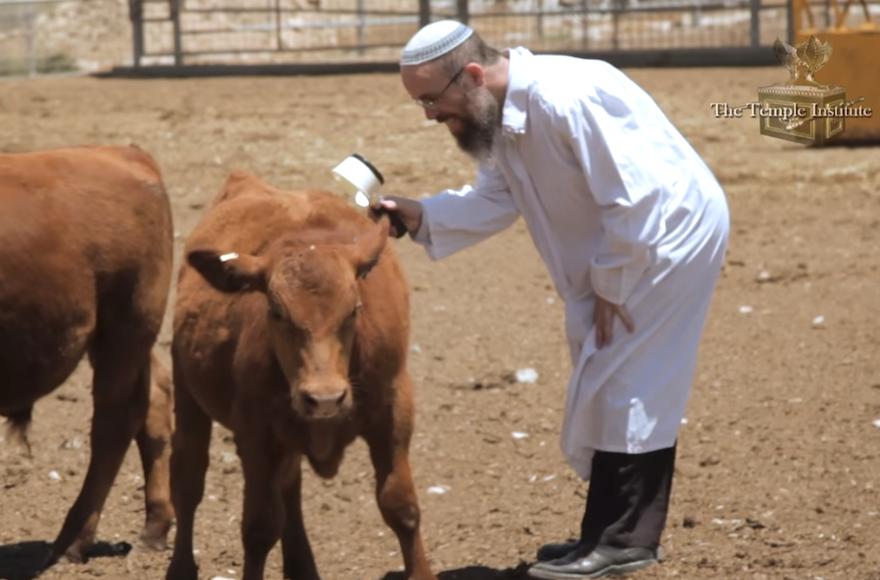BSD
Shkolim 5a
Teves 28, 5784. January 9, 2024
1- New משנה.
For the ease of travel of the שליח that is bringing up the מחצית השקל to ירושלים, the collectors may exchange all the collected silver מחצית השקל, into coins of gold.

2- Exchanging it into a diamond is not allowed since the market price for gems may fluctuate down and cause a loss to הקדש.
The term used in our גמרא is מרגליות. We mentioned the different opinions if that is a diamond or a pearl.
3 – We discussed the general view of the משנה and גמרא on inflation. The value of money (coins of gold or silver) is always constant. It is only the commodities that fluctuate in price.
In other words, the value of a Shekel is always a Shekel. That is a constant.
When there is inflation, it is the price of wheat, for example, that is more expensive.

4 – As a preface to the next part of the משנה, we spoke about the chronological order of the מחצית השקל from the initial giving to the actual usage of the coins for purchasing קרבנות.
We used as an example, the מחצית השקל originating in a small shtetl in Israel which is a 5 day trek to ירושלים.
Rosh Chodesh Adar – Proclamation for all to give.
15th of Adar – Local collector sets up a Pushka and begins collecting and placing them into a שופר shaped box. Wide on the bottom and narrow at the top to keep sticky fingers out…. See here.

The local collecter keeps track of all locals that donated and pawns the assets of the nay givers.
![]()
25th of Adar – he opens the שופר, counts the coins and if needed, exchanges them for gold coins. He chooses a local carrier שליח to make his way up to ירושלים to deliver it to the גזברים. They in turn place all the incoming שקלים in a large שופר.
Rosh Chodesh Nisan, the first batch is used by the גזברים to purchase animals to be used on that day. (We will learn later on about this process).
5 – If the שליח loses the coins or if he is robbed the question is ‘whose coins’ were lost or stolen? The donor’s or הקדש?
Generally, it would depend on when the loss or robbery occurred. Prior to Rosh Chodesh Nisan, then we view them, since they were never delivered to the גזבר, as still belonging to the donors. The שליח, since he is (generally) a שומר חינם, does not need to pay but needs to swear to the ‘owners’ (the donors) that he was not negligent.
However, it becomes interesting if the שליח never made it to ירושלים by Rosh Chodesh Nisan. Say, he arrives on the 5th of Nissan and delivers the שקלים from this shtetl.
The גזברים, five days prior, on Rosh Chodesh Nisan, have already spent some of the שקלים for their intended purpose – the purchasing of קרבנות.

So the big question is: Did their spending also include the שקלים (that didn’t arrive yet) that are in transit? Or even better – Did their spending also include the שקלים that are not in transit but will eventually (throughout the year) arrive in ירושלים?
There are different opinions on this but the הלכה is that all שקלים that will eventually arrive are included in the first תרומה by the גזברים on Rosh Chodesh Nisan.
א”ר יוסטי ב”ר סימון אתיא כמ”ד תורמין על הגבוי ועל העתיד לגבות
As the Rambam (Shkolim 2, 9) writes ‘It’s as if all the שקלים arrived’.
כשהוא תורם מתכוין לתרום על הגבוי שיש בלשכה. ועל הגבוי שעדיין לא הגיע ללשכה. ועל העתיד לגבות כדי שיהיו אלו השקלים שהוציאן להסתפק מהן כפרה על ישראל וכאילו הגיעו כל שקליהן ללשכה ונתרמה מהן תרומה זו:
It therefore follows, that if the שליח lost the שקלים or was robbed after Rosh Chodesh Nisan, since the גזברים had in mind all the שקלים (both – the ones in transit and even the ones that still need to be pledged and shipped to ירושלים) the שקלים in the pocket of the שליח belong to הקדש.
This will now change the direction of the שבועה of the שליח to the גזברין.
6 – We concluded with the story of חנניה, מישאל ועזריה, the decree to bow down to a צלם and being thrown into an oven and survived.
They took the cue to be מוסר נפש from the צפרדעים.
What was the story with the צפרדעים?
The frogs were in fact commanded to jump in the king’s palace, his bedrooms, beds, slave quarters, Egyptian homes, ovens and silos.
It says so in the posuk:
וְשָׁרַ֣ץ הַיְאֹר֘ צְפַרְדְּעִים֒ וְעָלוּ֙ וּבָ֣אוּ בְּבֵיתֶ֔ךָ וּבַֽחֲדַ֥ר מִשְׁכָּֽבְךָ֖ וְעַל-מִטָּתֶ֑ךָ וּבְבֵ֤ית עֲבָדֶ֨יךָ֙ וּבְעַמֶּ֔ךָ וּבְתַנּוּרֶ֖יךָ וּבְמִשְׁאֲרוֹתֶֽיךָ:
Yes, they were commanded as a group of frogs, but not each individual frog.
The individual frogs which jumped in the oven did not say “let the other frog jump in the oven”. They jumped in the oven and did not leave it for someone else to be מוסר נפש
So חנניה, מישאל ועזריה did not learn מסירת נפש from the frogs – for that they did not need the frogs.
They (unlike Daniel who escaped prior to the decree) learned from the frogs that although no one frog in particular was ordered to jump into the oven and perish, someone needed to do so.
They made a kal-vchomer: the frogs which do not have מצוה of ‘ קידוש ה, so readily jumped in the oven, how much more should we!

Interestingly, for this the frogs were actually spared, as the posuk says : וַיַּ֥עַשׂ יְהֹוָ֖ה כִּדְבַ֣ר משֶׁ֑ה וַיָּמֻ֨תוּ֙ הַֽצְפַרְדְּעִ֔ים מִן־הַבָּתִּ֥ים מִן־הַֽחֲצֵרֹ֖ת וּמִן־הַשָּׂדֹֽת: – the ones in houses and fields died, but not the ones who went in the ovens!
SeeTosfos in Pesochim 53b.
.מה ראו חנניה מישאל ועזריה. פ”ה מה ראו שלא דרשו וחי בהם ולא שימות בהן וקשה דהא בפרהסיא הוה ומסקינן בסנהדרין (דף עד.) דלכולי עלמא בפרהסיא חייב למסור עצמו אפילו אמצוה קלה.
ומפר”ת דצלם זה שעשה נבוכדנצר לאו ע”ז הוה אלא אינדרטא שעשה לכבוד עצמו ולכך קאמר מה ראו וכן משמע מדכתיב לאלהך לית אנחנא פלחין ולצלם דדהבא לא נסגוד משמע דאלהא דידיה וצלמא תרי מילי נינהו ואתי נמי שפיר הא דאמרינן באלו נערות (כתובות לג:) אלמלי נגדו לחנניה מישאל ועזריה פלחו לצלמא ואי ע”ז הוה ח”ו שהיו משתחוים לו ומיהו לשון פלחו לא אתי שפיר.
ור”י מפרש מה ראו שלא ברחו שהרי קודם המעשה היו יכולים לברוח כמו שעשה דניאל כדאמר בחלק (סנהדרין צג.) ג’ היו באותה עצה:
We mentioned the Jewish quip as to why the צפרדעים were not rewarded for posterity like the dogs who were didn’t bark during יציאת מצרים.